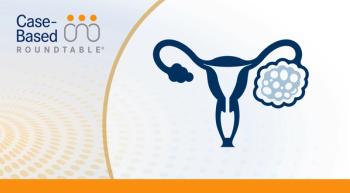
Data Update: 2-Year EFS Is Achieved With Neoadjuvant Enfortumab Vedotin in MIBC
Neoadjuvant enfortumab vedotin displayed promising outcomes for cisplatin-ineligible MIBC patients, achieving a 2-year EFS rate of 62.0%. Safety was affirmed with no treatment-related delays in surgery.
Neoadjuvant enfortumab vedotin (Padcev) demonstrated 2-year event-free survival (EFS) and favorable antitumor activity in patients with muscle-invasive bladder cancer (MIBC) who are cisplatin-ineligible. These updated data were presented by Peter H. O’Donnell, MD, during the 2024 ASCO Annual Meeting.1
“Importantly, from a safety standpoint, all patients in this trial who received neoadjuvant treatment proceeded to undergo cystectomy and there were no enfortumab vedotin-related [adverse] events [AEs] that caused delay in surgery for any patients,” O’Donnell said in a presentation of the data.
O’Donnell is an associate professor of medicine at the University of Chicago Medicine and specializes in genitourinary malignancies including prostate, kidney, testicular, and bladder cancers.
In cohort H of the EV-103 phase 1b/2 study (NCT03288545), enfortumab vedotin was administered as a monotherapy treatment to 22 patients who were cisplatin-ineligible with MIBC. The achieved EFS rate was 62.0% (95% CI, 38.2%-78.9%) at 2 years. In the overall population, however, the median EFS was not reached (NR).
Of the evaluated patients, 8 patients achieved a pathological complete response (pCR) rate of 36.4% (95% CI, 17.2-59.3) following neoadjuvant enfortumab vedotin, and 6 patients remain disease-free at the data cut-off of November 20, 2023, according to investigators. Also at the data cut-off, 15 patients continued long-term follow-up.
The median EFS for patients with a pCR was NR (95% CI, 6.5- NR) compared with patients without a pCR, which was 18.8 months (95% CI 6.7-NR).
Among patients, 86.4% successfully completed all 3 cycles of enfortumab vedotin, and the median duration of treatment was 2.1 months (range, 0.7-2.3). The pCR rate was 36.4% (95% CI, 17.2-59.3), and the pathological downstaging (pDS) rate reached 50.0% (95% CI, 28.2-71.8).
Patients included in the trial had either stage cT2 (68.2%), cT3 (27.3%), or cT4 (4.5%) disease and 68.2% had urothelial carcinoma and 31.8% had a mixed histology. Of the patients evaluated (n = 22), the median age was 74.5 years. All patients were White (100%), 20 were males (90.9%), and 21 (95.5%) were current or former smokers.
Patients had an ECOG performance score of 2 or less and were eligible for radical cystectomy and pelvic lymph node dissection. Patients received a neoadjuvant 1.25 mg/kg dose of enfortumab vedotin and pelvic lymph node dissection on days 1 and 8 every 21 days for a duration of 3 cycles. Patients then received radical cystectomy and pelvic lymph node dissection 4 to 12 weeks after last dose and imaging every 12 weeks for the first 2 years and then every 24 weeks.
Subsequent cancer-related therapy was administered to 36.4% of patients and included adjuvant therapy of pembrolizumab (Keytruda; n=2), carboplatin-base therapy (n=1), and erdafitinib (Balversa; n=1). One patient received systemic therapy for progressive diseaseand 3 patients received other therapy.
The primary end point was pCR rate, which was determined by central pathology review. The secondary end points were pDS (ypT0, ypTis, ypTa, ypT1, and N0), safety, and event-free survival (EFS) as determined by investigator assessment. This encompassed radiographic progression before radical cystectomy (RC), failure to undergo RC, gross residual disease at time of RC, recurrence, or death.
“The safety profile for enfortumab vedotin was generally manageable and consistent with known prior AEs for this drug,” O’Donnell explained.
The prevalent treatment-emergent adverse events (TEAEs) associated with enfortumab vedotin were fatigue (45.5%), dysgeusia (36.4%), and alopecia (31.8%). There were 18.2% of patients who experienced grade 3 or greater enfortumab vedotin -related TEAEs and the most common were dehydration, erythema multiforme, and hyperglycemia occurring in 1 patient each. Any-grade surgery-related TEAEs affected 68.2% of patients, with procedural pain (18.2%), anemia (13.6%), and constipation (13.6%) being the most common.
Most AEs were grade 1 or 2 and those experiencing skin-related AEs and hyperglycemia AEs were resolved at 100%. Those experiencing peripheral neuropathy AEs were resolved at 44%.
There were 3 patients who died because of AEs not related to enfortumab vedotin treatment, according to investigators. These deaths were acute kidney injury, cardiac arrest, and pulmonary embolism and each occurred less than 30 days after last dose of enfortumab vedotin.
Currently, there are no established neoadjuvant treatment options proven to enhance survival for patients diagnosed with MIBC who are ineligible for cisplatin and are undergoing radical cystectomy with pelvic lymph node dissection. Enfortumab vedotin is an antibody-drug conjugate that targets Nectin-4, a protein highly expressed in urothelial cancer. Both alone and in combination with pembrolizumab, enfortumab vedotin improves overall survival compared with chemotherapy in patients with previously treated and untreated locally advanced or metastatic urothelial cancer.
“These follow-up data continue to show the efficacy of enfortumab vedotin as a monotherapy treatment in the neoadjuvant setting for patients who are cisplatin-ineligible and have MIBC. These results also support the ongoing phase 2 and 3 trials that are evaluating enfortumab vedotin alone and in combination with pembrolizumab for patients with MIBC,” O’Donnell concluded.
The trials mentioned include, the EV-103 Cohort L, which is evaluating perioperative enfortumab vedotin in patients with MIBC and who are cisplatin-ineligible. Other trials are the phase 3 KEYNOTE-905/EV-303 (NCT03924895) trial, which is evaluating perioperative enfortumab vedotin plus pembrolizumab in those who are cisplatin-ineligible with MIBC and the KEYNOTE-B15/EV-304 (NCT04700124), which is also evaluating perioperative enfortumab vedotin plus pembrolizumab but for patients who are cisplatin-eligible with MIBC.




















